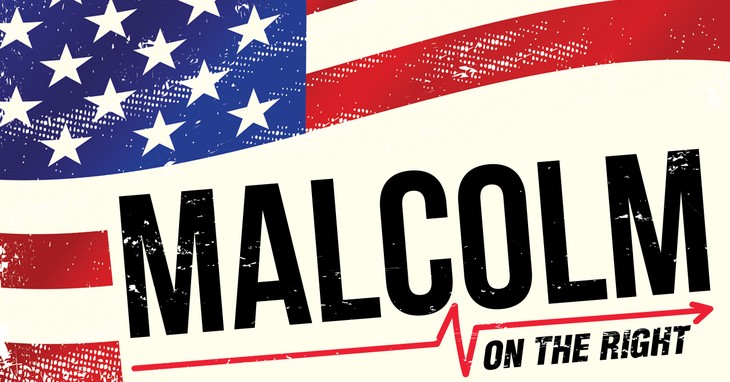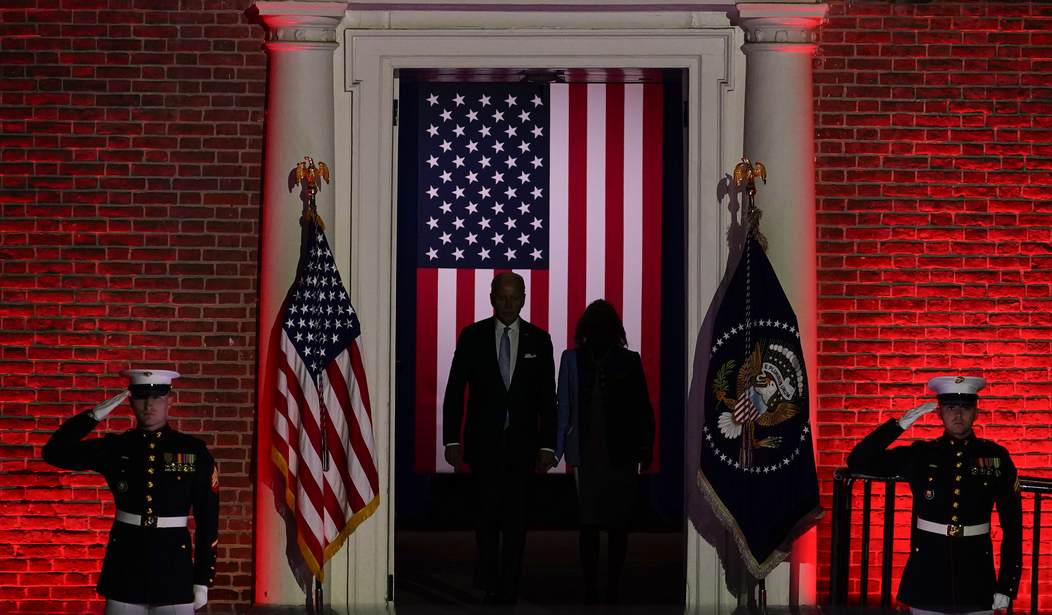Have you ever met someone new, say, at a social gathering? Thirty seconds later, your spouse approaches. You go to introduce them and the new person’s name has absolutely vanished from your mind, totally forgotten like a Joe Biden promise. Not even an inkling left.
My years in federal and state politics taught me many valuable and actually interesting lessons, which I try to share here regularly. One of the biggest, enduring lessons I carried away from politics is the simple, yet nuclear-weapon-sized power of listening and remembering names. I’ve worked at that ever since, though I’m still in the beginner’s stage.
As a politician, I learned, you can sometimes have a most disagreeable policy…. Yet, if you simply shut your mouth and listen to someone disagreeing and later say goodnight to them by name, good things can happen. Even if there’s no pending election. It’s polite, but it’s also a powerful political tool.
Imagine that in 2022.
There’s not a whole lot of listening going on in American politics these days. Yelling, yes. Anger, most definitely. Name-calling, for sure. Last week we had a despicable display of this lazy divisiveness in Joe Biden’s appalling address in Philadelphia. Being old, senile, insecure, and rather dim is no longer an excuse for an impotent national leader.
This was the kind of speech, like Hillary Clinton labeling her opponent’s supporters “deplorables,” that will stick to Brandon like gum on your best shoes.
Congress calls some of its committee meetings “hearings.” They’re not. They’re skits totally staged for the cameras. Questioners know the answers before the asks. There’s no listening or hearing going on. Good for theater, I guess, but not for getting much done in the way of governing, consensus-building, or governing progress.
And consequently, there’s not a whole lot of worthy things getting done in D.C.
As a politician nowadays, if you’re not yelling back, you’re labeled a RINO or DINO or PINO, whatever the hot derogatory label is to excuse not listening.
Years ago, I worked for a Republican governor, as they often are in the Mountain West. The president, a Democrat, announced that grizzly bears would soon be restored to a rural area of federal land in his state. No consultation. No advance notice. No listening. Deal with it.
Locals were furious since this seriously impacted their recreation and neighborhood. Local media asked the governor. He responded, accurately, that the feds could legally do whatever they wanted there, but he would work with them to ameliorate the impact.
Always alert for conflict, media reports made it appear the governor was OK with the policy and would cooperate with Washington. Outrage exploded, even beyond that nearby community.
The response of that atypical governor – I’ll call him Marc Racicot – was not to ignore or dodge the reaction. “Let’s have a town meeting there,” he said.
On the appointed evening, the hall was jam-packed with angry locals. In walked the governor they vehemently disagreed with. What was the response of that hostile crowd? He got a standing ovation.
He hadn’t said one word. But he’d come on a school night to listen. Which he did during upwards of three hours of angry speakers. At times he simply acknowledged the remarks using their names. Others, he wove in his points of pragmatism. He also greeted some familiar faces in the crowd by name.
“Anyone else?” he asked after scores of speakers. Nope. He thanked them all for coming. And he got another standing ovation.

Now, some folks will say the nation is too partisan for such calm reason, decorum, and reacting, too divided by ideology, accusations, and bitter recriminations. And they have a good case. given a president so fragile and clearly frightened by his own weaknesses that he calls opponents names and hands out derisive labels to fuel his pack’s unity. Donald Trump does the same, sees it as punching back.
A Gold Star mother of an American soldier killed last year in the Kabul chaos of Joe Biden’s botched withdrawal recently described her meeting with the commander in chief. She was talking of her son when Biden interrupted to talk of his son who died of cancer. Too afraid to listen.
At some point, I hope, the pendulum swings back toward more reasoned discourse. Not the media, but voters will tire of the strife and turmoil which they said they were so tired of in 2020 when they rejected Trump without realizing that Joe Biden was just another name-caller in a different team uniform.
Some public figures have an uncanny ability with names. Bill Clinton was a master of that. And thus, of retail politics. He spoke to all 50 governors once in a packed Las Vegas ballroom.
Then, the former governor said, he wanted to meet the people who really made things happen in states, the governors’ aides. Each governor had two aides present. Clinton proceeded to make everyone wait almost a half-hour while he circled the room shaking 100 hands and greeting each of us by name.
Now, we had name tags on chains hanging below our chest. But I watched his eyes. They made eye contact with everyone, did not drop to read names. “Hello, Andrew,” he said. “Nice to meet you.”
Gov. Racicot and I were ordering dinner in a Billings restaurant one evening. The waitress was taking my order, when he told her, “We’ve met, haven’t we?”
“Yes,” she said, quite pleased.
“Your name is Yvonne.”
The waitress was stunned. Actually, so was I.
“Yellowstone County Courthouse,” said the former prosecutor, “1983.” Jaws dropped. That was more than 10 years before.
“I’m sorry,” the governor said, “I don’t know your last name.”
“Oh, that’s OK,” said the flustered waitress.
“But then,” the governor said with a sly smile, “They didn’t tell us the last names of jurors.”
Mike Mansfield was a New York native sent to Montana to live with relatives. He has a storied history, serving in three military branches, the copper mines of Butte, 10 years in the House of Representatives, and 24 in the Senate, as the nation’s longest-serving Majority Leader.
In 1977, Jimmy Carter named him ambassador to Japan. Ronald Reagan did the same, and Mansfield was ambassador for 12 years, longest tenure ever there. He also advised seven presidents.
Tokyo was where I came to know him as a straight-shooting source, both on and off the record. Years later, I happened to be at the State Department when I saw a rope line going up. I hung around to see what VIP was arriving.
A government car pulled up. Out hopped Mike Mansfield, then deep into his 80s. As he walked briskly up the walk, he spotted me in the crowd. “Andy!” he exclaimed, leaving the entourage.
We exchanged greetings and he asked, “How’s that little girl of yours, Emily? She should be just about ready for college.”
It had been 10 years since Mansfield met her and we talked. “Uh, yes, sir,” I said. “She began college last month.”
Again, the simple power of remembering a name.













